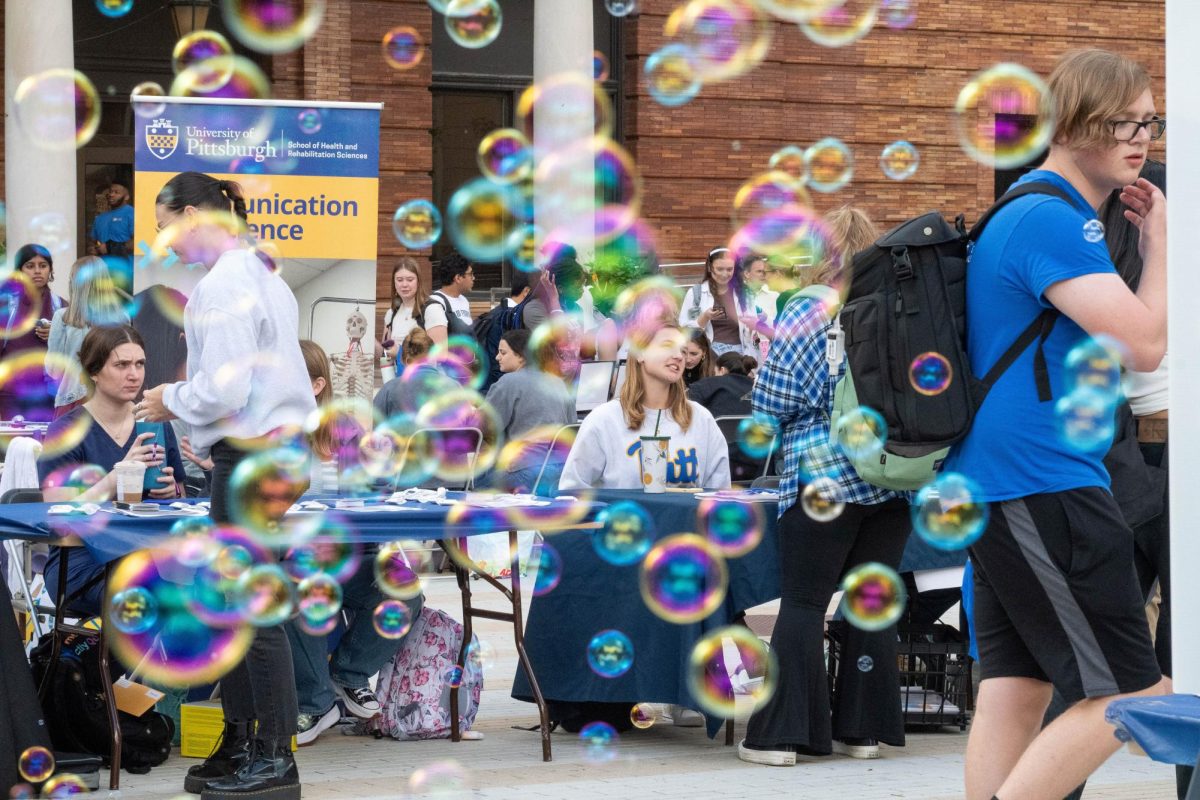Before they submit a paper or turn in a difficult final, a new college student must face a challenge they may not have had in high school — what to do with their newfound free time. One outlet for this new leisure time is to join an extracurricular on campus.
“Students are developing their intellectual curiosity and growing as adults. It is important to explore new activities and be open to new experiences,” David Day, associate director of the Student Organization Resource Center, said. “There are hundreds of opportunities, each providing a different experience.”
There are over 450 undergraduate student organizations at Pitt, each with its own goals, community and history. That’s a lot of choices, but the SORC has tips to help new students find what they’re looking for.
“We have a searchable database, Experience Pitt, which allows students to search all student organizations by key words or categories,” Day said. “Students can narrow down their options and reach out to members of specific organizations. We suggest that students examine the options and create a short list of groups to target for connection.”
According to Day, new students can attend the Club Sports Fair on Aug. 24 and the Student Involvement Fair on Aug. 25 for more opportunities to connect with clubs.
Pitt has a range of different club types, including fraternities and sororities, club sports, academic and professional clubs and special interest clubs. New students hoping to continue playing a sport or to try a new sport in college can join a competitive or intramural club team.
“By joining a club sport at Pitt, you join a community,” Sri Sridhar, president of the Cricket Club, said. “These communities put you closer to individuals who share your passion for the sport. Furthermore, you open up to opportunities to enhance your skills through coaching, practices, and competitive play. Not to mention, these sports foster physical fitness — there are regular training sessions and matches that contribute to a healthy lifestyle and a competitive environment.”
With over 40 Greek chapters, fraternity and sorority life has a strong presence at Pitt. Alexis Davis, assistant director for fraternity and sorority life at Pitt, emphasized the benefits of joining one of these groups.
“There are so many benefits to joining a fraternity or sorority at Pitt,” Davis said. “We have had students who would tell us they weren’t initially interested in joining an organization, but then when they met students already affiliated with one, they learned how amazing the organization is and felt they wanted to be a part of something bigger than themselves.”
Davis also emphasized how fraternities and sororities create a sense of community in the overwhelming environment of college.
“We have students who have shared their stories of how they met their best friends either in their own chapter or in a different chapter,” Davis said. “A student can find a sense of belonging in a fraternity or sorority, they can find a support system while they are at school. This support system can help both academically and personally. Students have also learned more about their leadership styles and have access to so many professional development opportunities.”
Besides Greek life and sports, there are many other kinds of clubs at Pitt specializing in the arts, culture, advocacy, service and other special interests. These kinds of clubs can create the strongest bonds, according to Bella Lardin, station manager for WPTS Radio.
“It’s a little bit easier to make friends when you both already know that you share an interest,” Lardin said. “In my experience, members of an organization also spend a lot of time together outside of the organization, which can help you connect more with other members and enhance your social life. The strongest connections usually come from working closely on projects together, though — you’re forced to spend a lot of time together and gain a much better understanding of each other as people.”
Joining a student organization can also prove useful for professional and career growth, according to Day.
“We have over 180 academic student organizations. [They] are a crucial avenue for students to develop their peer group and grow their network,” Day said. “I advise freshmen all the time that when they connect with upperclass students, they are essentially creating a guidance team, a mentoring network … A few years down the road, these same mentors are in the workforce and can help with career networking and internship opportunities. Student organizations offer tangible growth experiences to help students to be successful. Essentially, they are mini-internships that provide tangible learning and leadership experiences.”
Whether it’s joining Greek life, playing a sport or joining a social club, new students have dozens of places to spend their time outside of the classroom. More than that, they are places that make Pitt feel like home, according to Lardin.
“The people that I’ve met at WPTS have been some of my closest friends since I met them,” Lardin said. “I can say with certainty that I would have felt very isolated, especially as an undergrad, if I hadn’t joined. It’s nice to have a community like that there for you when you’re struggling, and that’s probably the number one benefit of joining.”


